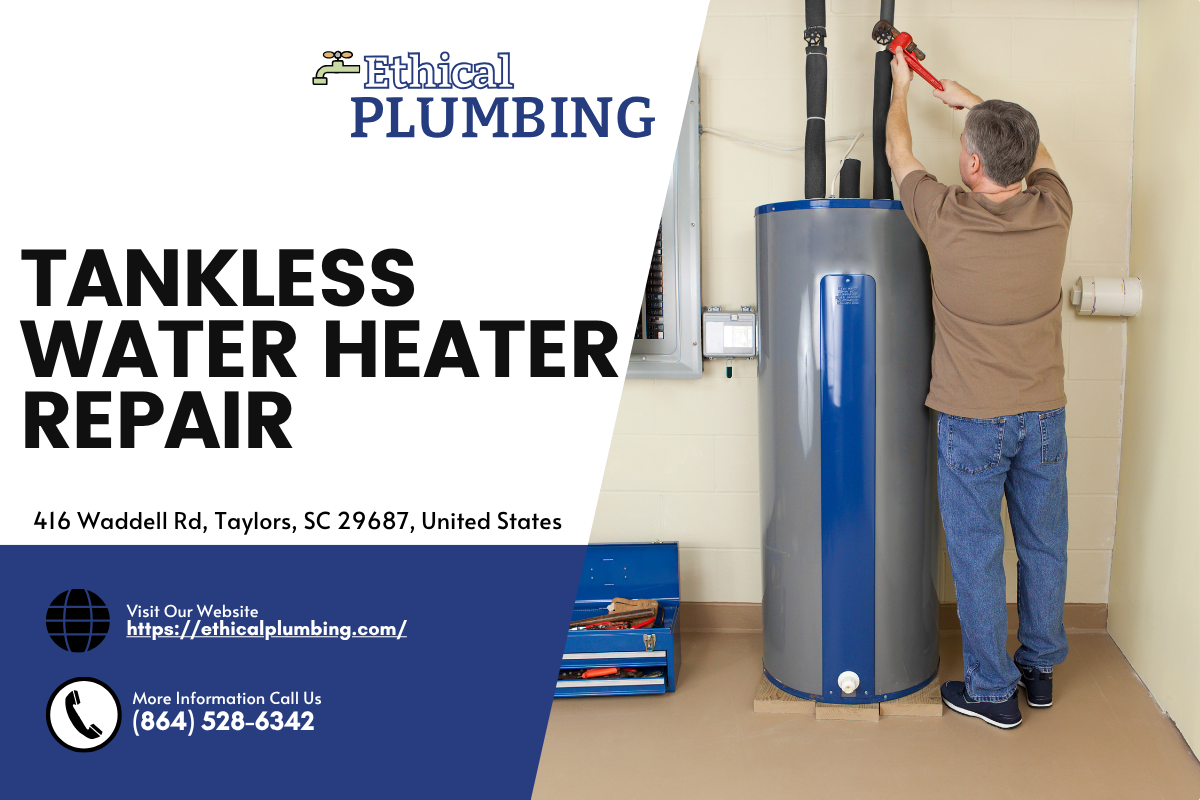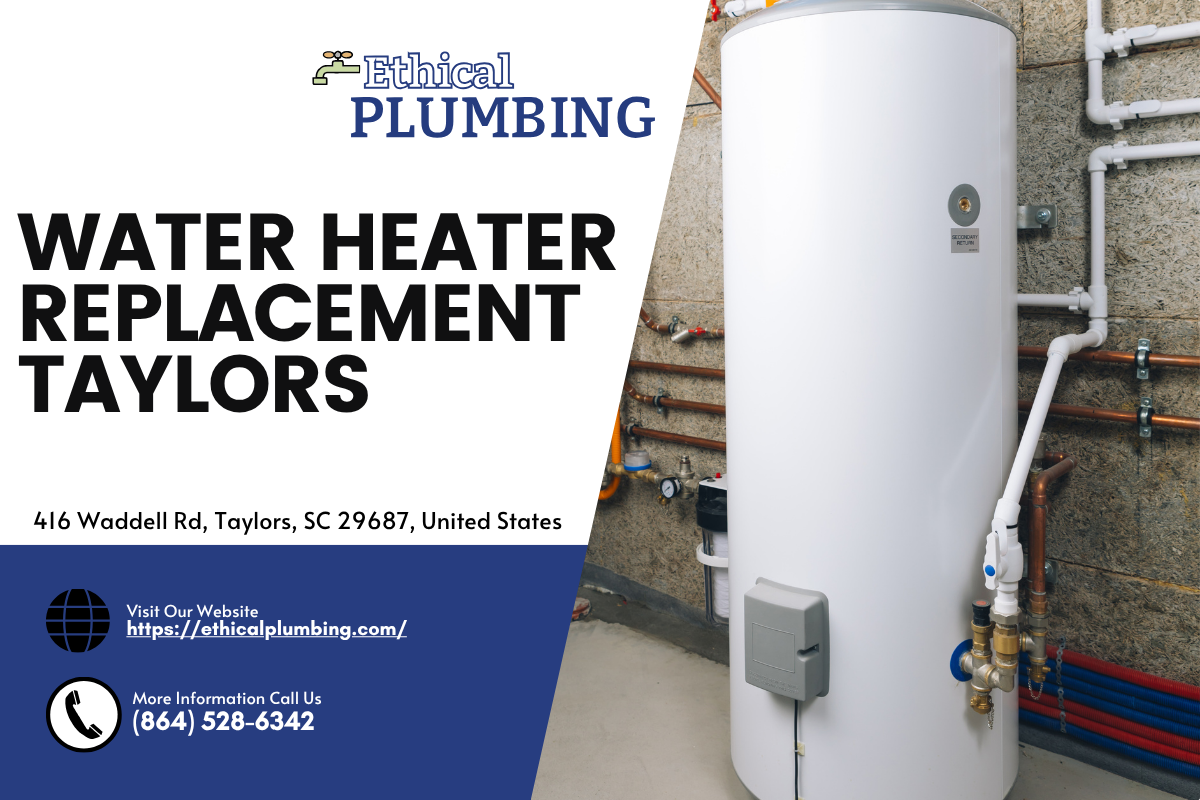


Introduction
When it comes to maintaining your home, the phrase "an ounce of prevention is worth a pound of cure" rings especially true. This sentiment is particularly relevant when discussing essential home appliances like water heaters. Regular maintenance can significantly extend the lifespan of your water heater, leading to fewer repairs and less hassle in the long run. In this comprehensive guide, we’ll delve into the importance of routine maintenance for your unit and how it can help you avoid major repairs. We’ll cover everything from water heater repair and installation to specific maintenance tips that keep your system running efficiently.
Table of Contents
Understanding the Basics of Water Heaters- 1.1 Types of Water Heaters 1.2 How Water Heaters Work
- 2.1 Benefits of Regular Inspections 2.2 Common Issues Caused by Neglect
- 3.1 Monthly Tasks 3.2 Seasonal Tasks
- 4.1 Signs You Need a Repair 4.2 When to Consider Replacement
- 5.1 DIY vs Professional Help 5.2 Finding Qualified Technicians
- 6.1 Advantages of Tankless Systems 6.2 Special Maintenance Needs for Tankless Units
- 7.1 No Hot Water? 7.2 Strange Noises from Your Unit
- 8.1 Regular Inspections and Cleaning 8.2 Temperature Settings and Energy Efficiency
- 9.1 Comparing Costs: Repairs vs Regular Maintenance
Understanding the Basics of Water Heaters
Types of Water Heaters
Before diving into maintenance techniques, it's vital to understand the different types of water heaters available today:
- Traditional Tank Water Heaters: These units store hot water in a tank, providing a reservoir for immediate use. Tankless Water Heaters: Also known as on-demand heaters, these units heat water directly without storing it in a tank. Heat Pump Water Heaters: These use electricity to move heat from one place to another instead of generating heat directly.
Each type has its own pros and cons, but they all require regular care to function optimally.
How Water Heaters Work
Generally speaking, water heaters operate by heating cold water through electric coils or gas burners until it reaches the desired temperature set by the thermostat.
Key Components:
- Thermostat: Regulates water temperature. Drain Valve: Used for maintenance tasks such as flushing out sediment. Anode Rod: Prevents rusting inside the tank.
Understanding these components can help you appreciate why routine checks are so crucial.
Why Routine Maintenance Matters
Benefits of Regular Inspections
Routine maintenance helps catch minor issues before they escalate into larger problems requiring costly repairs or replacements.
Benefits Include:
- Improved efficiency leads to lower energy bills. Increased lifespan of your unit. Enhanced safety features prevent leaks or explosions.
Common Issues Caused by Neglect
Failing to maintain your unit can lead to several problems, including:
- Sediment buildup affecting heating efficiency. Rusty pipes leading to leaks. Malfunctions that could require extensive repairs or even total replacement.
Water Heater Maintenance Checklist
Monthly Tasks
Here’s a simple checklist you can follow monthly:
- Check Temperature Settings: Ensure they're set between 120°F and 140°F for optimal performance. Inspect for Leaks: Examine connections and valves for any signs of leakage.
Seasonal Tasks
Every three months, consider doing a more thorough check:
| Task | Frequency | |---------------------|-----------| | Flush Tank | Every six months | | Inspect Anode Rod | Annually |
Taking these steps will go a long way toward avoiding major repairs down the line.
Water Heater Repair vs Replacement
Signs You Need a Repair
Knowing when to call in a technician can save you time and money:
- Discolored water might indicate rust inside your tank. Unusual noises often point toward sediment buildup or other issues.
When to Consider Replacement
If you're facing frequent repairs or if your unit is over ten years old, it may be time for an upgrade.
Factors influencing this decision include age, condition, energy efficiency ratings, and overall cost-effectiveness.
The Importance of Professional Water Heater Service
DIY vs Professional Help
While some basic maintenance tasks are doable for homeowners, complex issues should always be handed over to professionals.
Why Choose Professionals?
- Expertise ensures problems are diagnosed correctly. Licensed technicians typically offer warranties on their work.
Finding Qualified Technicians
Use platforms like Yelp or Angie's List to read reviews and find trusted services in your area specializing in water heater repair and installation.
Tankless Water Heaters: Unique Considerations
Advantages of Tankless Systems
Tankless systems offer several benefits over traditional units:
- Endless supply of hot water. Smaller size saves space.
But they do require specific maintenance practices that differ from conventional systems.
Special Maintenance Needs for Tankless Units
Regular descaling is necessary due to mineral buildup that can affect heating elements over time—usually recommended at least once annually.
Troubleshooting Common Problems
No Hot Water?
This is one issue that no homeowner wants to deal with! If you're not getting any hot water, check these common culprits:
- Tripped circuit breaker (for electric models). Gas valve closed (for gas models).
If these adjustments don’t resolve the issue, professional intervention may be necessary.
Strange Noises from Your Unit
Hearing pops or hisses? These sounds usually indicate sediment buildup inside your tank—urgent action is required here!
Flushing your tank should be done regularly; otherwise, it could lead to more severe issues down the road!
Preventative Measures for Longevity
Regular Inspections and Cleaning
Regularly inspecting connections, valves, and condition can help detect wear before it leads to significant failures—aim for at least annual inspections!
In addition:
| Task | Frequency | |-------------------------------|--------------| | Inspect Anode Rod | Annually | | Flush Tank | Every six months |
Following this schedule will help ensure optimal performance throughout each season!
Temperature Settings and Energy Efficiency
Keeping your thermostat set between 120°F and 140°F not only saves energy but also reduces wear on heating elements—making this an easy win-win strategy!
The Cost-Benefit Analysis of Maintenance
When weighing costs associated with regular service against potential repair bills incurred through neglectful practices—maintaining discipline pays off greatly under pressure! A simple $100 service call could save thousands later down the line—it's hard not seeing those numbers add up quickly!
Customer Testimonials: Real-Life Experiences with Maintenance
Hearing from others who’ve experienced both sides provides valuable insights into how proactive measures made significant differences in their lives! Here are just a few testimonials emphasizing their journeys through effective maintenance practices versus neglectful habits:
"I ignored my unit's strange noises until it finally broke down costing me twice what I would’ve spent on regular checkups!" – Sarah T., Homeowner
"Investing in professional service saved us headaches—we haven't had any major breakdowns since!" – https://www.google.com/search?kgmid=/g/11_rsv_8f&uact=5#lpqa=a,,d,1 Mike L., Landlord
Frequently Asked Questions (FAQs)
Q1: How often should I perform maintenance on my water heater?
A: Generally speaking, annual inspections are ideal while flushing tanks every six months helps reduce sediment buildup effectively!
Q2: Can I perform maintenance myself?
A: While some tasks like checking temperatures or inspecting valves may be manageable—you should always consult professionals when dealing with complex issues!
Q3: What signs indicate I need immediate repair?
A: Look out for discolored water indicating rust corrosion inside tanks; unusual noises often indicate sediment build-up needing urgent attention too!
Q4: Is replacing my old unit worth it?
A: If repairs become frequent & costly compared against purchasing new models offering better energy efficiency rates—it might just save you money long-term!
Q5: Are tankless units easier than traditional ones?
A: While they do provide endless hot-water supplies—they come with unique requirements like descaling regularly which may require more hands-on involvement than classic designs do!
Q6: What's included in professional service visits?
A: Typically services involve inspections & troubleshooting along with necessary cleaning steps ensuring maximum efficiency levels throughout usage periods too!
Conclusion
In summary, avoiding major repairs hinges significantly upon committing yourself towards routine maintenance practices! From understanding various types available through knowing when each requires special attention—the key takeaway remains clear; proactive measures yield far greater returns than reactive solutions ever could! Whether assessing costs linked with ongoing upkeep versus sudden breakdowns encountered unexpectedly—all evidence points towards one conclusion—we must actively engage ourselves within our responsibilities as homeowners if we wish our units stay functional smoothly across seasons ahead! So take charge now—don’t wait till disaster strikes before making changes needed today!